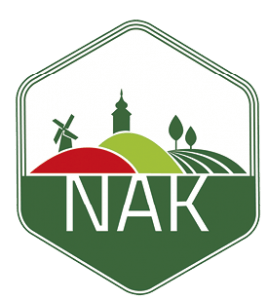Lessons learned from the crisis can help to get back on our feet
The coronavirus pandemic put the Hungarian Chamber of Agriculture (NAK) to a great test, too. Our magazine interviewed NAK president Balázs Győrffy.

![]() – How did the coronavirus pandemic influence the Hungarian agri-food sector?
– How did the coronavirus pandemic influence the Hungarian agri-food sector?

Győrffy Balázs
elnök
NAK
– Certain segments of the agri-food sector, for instance vegetable and mushroom farming, were hit very hard by the pandemic already in the spring of 2020. In general we can say that those segments suffered the biggest blow that are the suppliers of the HoReCa sector and mass catering, plus the exporting segment. Hopefully the pandemic is going to end soon and these channels will be widely available again. This is the reason why it is very important to assist Hungarian products in entering various markets, increasing their share in domestic sales and helping them enter foreign markets. Consumers can help by buying Hungarian products.
![]() In what ways was NAK able to help?
In what ways was NAK able to help?
– NAK keeps working on ensuring the efficient operation of agri-food businesses. We established county-level agricultural coordination working groups, which gather information at local level and we try to solve the problems that emerge this way. NAK regularly makes recommendations to the Ministry of Agriculture, the Task Force for the Restart of the Hungarian Economy, the Ministry for Innovation and Technology and the Operative Board. We also launched the NAK Marketplace website and negotiated with the biggest actors in grocery retail for a bigger share for Hungarian products in the assortments of stores.
![]() What positive things did the pandemic bring about?
What positive things did the pandemic bring about?
– I think that the agri-food sector proved: it is a strategic sector of the national economy and at the same time one of its most crisis-resistant segments. We can produce more food products than we need, so it is definitely worth developing this sector. If the pandemic made any positive impact, it is the fact that it brought the weaknesses of certain sectors to light, which can serve as an input in finding the right solutions to these problems when planning the European Union’s Common Agricultural Policy (CAP). It is very likely that the market is going to transform significantly – there will be bigger emphasis on the self-sufficiency of member states. We need to strengthen the positions of several areas and increase the competitiveness of Hungarian products. One way to do this is reaching a higher level of processing.
![]() NAK has strengthened food industry related trade activities. What kind of progress was made in this field?
NAK has strengthened food industry related trade activities. What kind of progress was made in this field?
– We established and now operate a food industry coordinator system, which collects the problems of NAK members all over the country, and based on the information gathered we make recommendations to decision-makers. NAK set up working groups for expanding the Quality Food from Hungary (KMÉ) trademark system and for assisting the work of Food Book committees. We made improvements in the NAK Marketplace website and promote Hungarian groceries in retail. NAK also helps members to apply for funding from the CAP.
![]() How much money can Hungary’s agri-food businesses apply for from the CAP budget?
How much money can Hungary’s agri-food businesses apply for from the CAP budget?
– Starting in 2021, the Hungarian government offers 80-percent co-financing – instead of the former 17.5 percent – for the funding granted to businesses from the EU’s rural development budget. There will be more than HUF 4,000 billion available for rural development purposes until 2027, from which the competitiveness of Hungarian agriculture and food production can be increased. Already this year micro- and small businesses from the agri-food sector can apply for funding from a HUF 50-billion budget, while HUF 200 billion will be made available to medium-sized and large enterprises. //
Related news
Protein, gut health and mental wellbeing – these trends will shape global food innovation in 2026
🎧 Hallgasd a cikket: Lejátszás Szünet Folytatás Leállítás Nyelv: Auto…
Read more >CBAM causes market disruption
🎧 Hallgasd a cikket: Lejátszás Szünet Folytatás Leállítás Nyelv: Auto…
Read more >Related news
40 secure jobs, sustainable solutions – new BURGER KING® in Csepel
🎧 Hallgasd a cikket: Lejátszás Szünet Folytatás Leállítás Nyelv: Auto…
Read more >Hétéves növekedési stratégiát jelentett be az Auchan
🎧 Hallgasd a cikket: Lejátszás Szünet Folytatás Leállítás Nyelv: Auto…
Read more >








